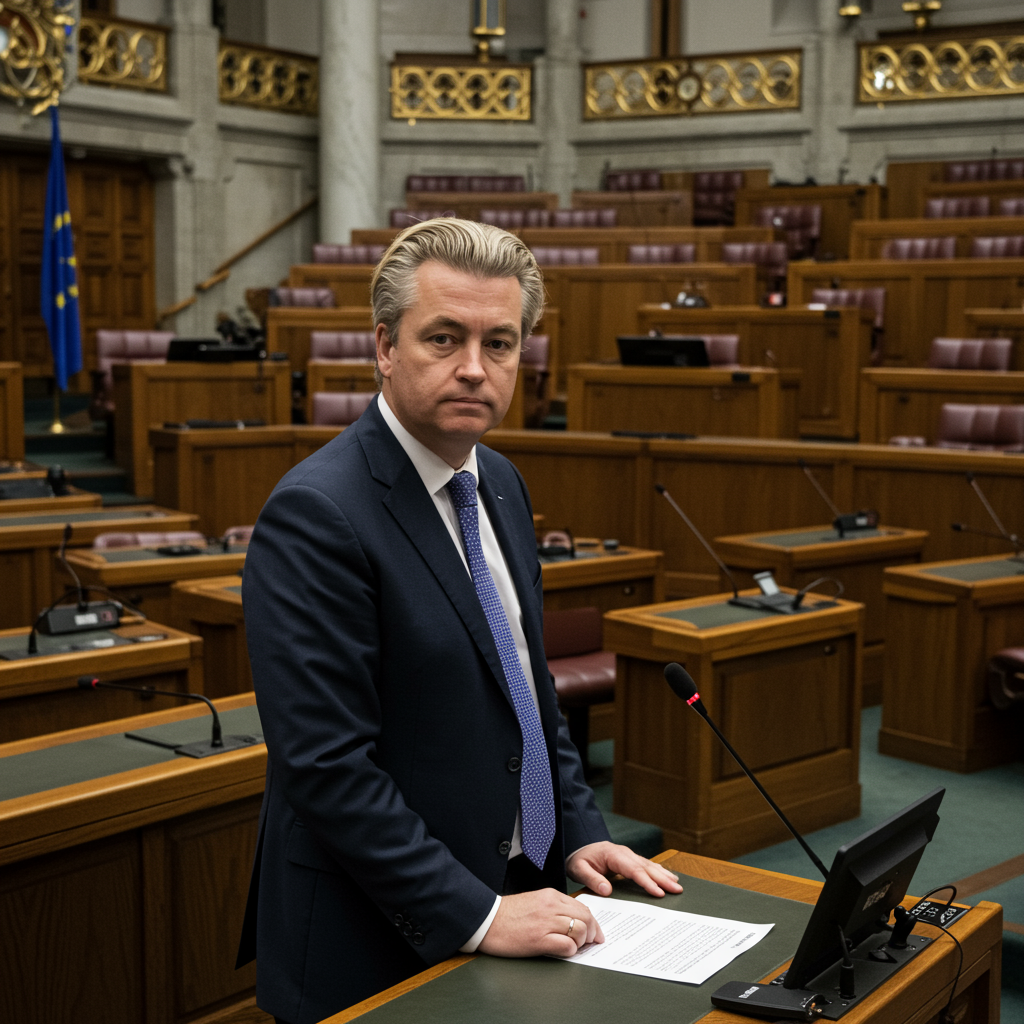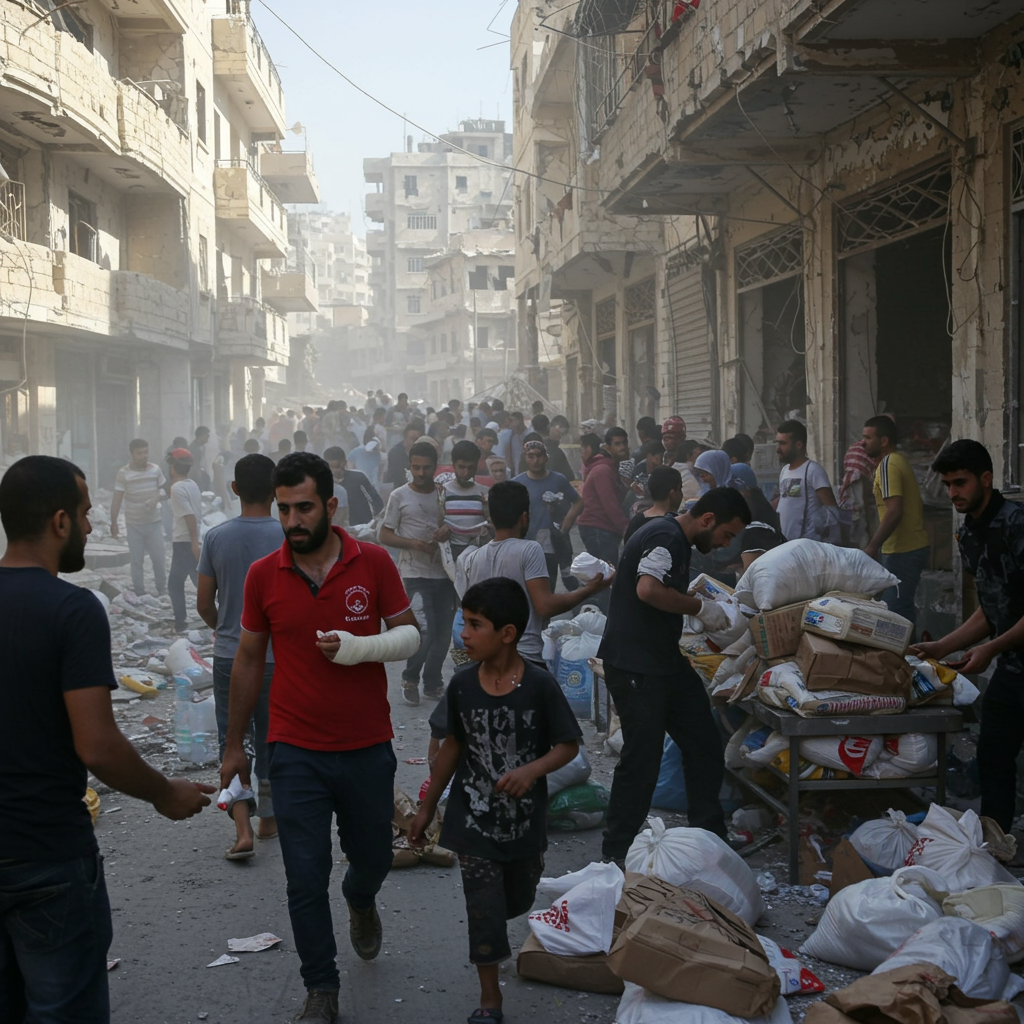Dutch Government Falls Amid Far-Right Leader’s Withdrawal
The Netherlands is facing political uncertainty after its coalition government collapsed following the withdrawal of Geert Wilders’ far-right Party for Freedom (PVV). Prime Minister Dick Schoof confirmed the government’s resignation on Tuesday, a move triggered by an irreconcilable dispute over increasingly stringent migration and asylum policies.
The collapse comes less than a year after the fragile four-party coalition, which also included the conservative-liberal VVD, the populist Farmers’ Citizen Movement (BBB), and the centrist New Social Contract (NSC), was formed in July 2023 after lengthy negotiations following the previous year’s election.
The Asylum Policy Standoff
The immediate cause of the government’s demise was PVV leader Geert Wilders’ demand for 10 additional, radical measures to drastically curb asylum migration. These proposals reportedly included extreme steps such as a complete freeze on asylum applications, halting the construction of new reception centers, strictly limiting family reunification, repatriating Syrian refugees, and even potentially deploying the military to patrol Dutch borders.
Wilders justified his party’s exit by stating his commitment was to the “toughest asylum policy,” not what he termed the “downfall of the Netherlands.” He announced the decision on social media, declaring, “No signature for our asylum plans. PVV leaves the coalition.”
Prime Minister Schoof described Wilders’ decision as “irresponsible and unnecessary,” stating that it “shouldn’t have happened” and that there was insufficient support left for the government to continue effectively. The crisis reportedly unfolded rapidly after a crucial meeting between coalition leaders lasted just one minute before Wilders walked out.
Political Fallout and Sharp Criticism
The abrupt collapse drew strong reactions from Wilders’ former coalition partners and the opposition. Many leaders expressed shock, anger, and disbelief, particularly given the current geopolitical climate with a war on the European continent and the upcoming NATO summit in The Hague.
VVD leader Dilan Yesilgoz called the move “super irresponsible,” suggesting it wasn’t truly about asylum but driven by Wilders’ “ego” and accusing him of “running away” from responsibility. Deputy Prime Minister Mona Keijzer of the BBB felt Wilders was “betraying the Netherlands,” while NSC leader Nicolien van Vroonhoven found the collapse “incredible” and “irresponsible.”
Opposition figures were equally critical. The Socialist Party leader Jimmy Dijk declared the country had been “liberated from a political hostage situation,” labeling the coalition as “four right-wing quarrelsome parties that achieve nothing.” Frans Timmermans of the Labour/Green Left alliance argued that early elections were now the only path to forming a stable government.
What Happens Next?
With the government collapsed, Prime Minister Schoof is expected to formally offer the cabinet’s resignation to King Willem-Alexander. The remaining ministers will likely continue in a caretaker capacity until a snap election can be held. While no date has been set, speculation suggests it might not occur before October.
This period of political uncertainty is expected to delay significant policy decisions, including a potential increase in defense spending necessary for the Netherlands to meet NATO targets – a topic particularly relevant as The Hague prepares to host a NATO summit later this month.
Analysts suggest Wilders may have intentionally triggered the collapse, potentially to capitalize on the asylum issue and boost his party’s standing for the next election. Although the PVV won the most seats in November 2023, recent polls indicate a decline in support, placing them roughly level with the Labour/Green Left alliance. By forcing an election on the divisive issue of migration, Wilders aims to regain momentum, though experts view this as a political gamble, especially considering his party held responsibility for asylum policy within the collapsed government.
Despite the political turmoil, the immediate economic impact is seen as minimal by some experts, partly attributed to the previous government having made “barely any concrete plans” during its short tenure. However, Dutch media reactions have been critical, with one newspaper describing the cabinet as “destroyed by amateurism and incompetence.”
The collapse of the Dutch government underscores the ongoing challenges of forming stable coalitions in a fragmented political landscape and highlights the central, often volatile, role of immigration policy in European politics.
References
- https://www.bbc.com/news/articles/c0r1x5yyd5wo
- https://www.nbcnews.com/world/europe/netherlands-government-collapses-far-right-leader-wilders-quits-coalit-rcna210555
- https://www.aljazeera.com/news/2025/6/3/dutch-coalition-government-in-crisis-after-far-right-wilders-pulls-support
- https://www.theguardian.com/world/2025/jun/03/netherlands-government-collapse-geert-wilders
- https://www.dw.com/en/dutch-coalition-collapses-after-wilders-withdrawal/a-72770240



